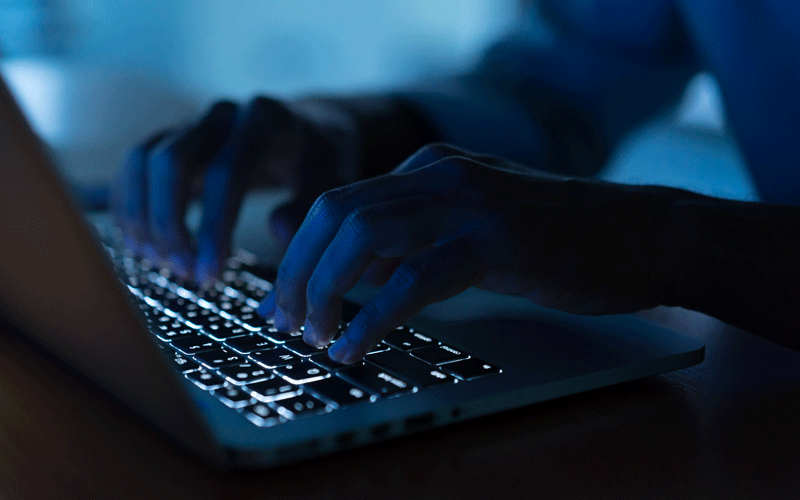Be on look out for cyber criminals this season

With the festive season underway, cases of online crimes are on the rise as individuals try to take advantage of netizens at their most carefree moment.
Mugambi Laibuta, an advocate of the High court of Kenya and a privacy and data protection expert, says Covid-19 forced people online, placing them at risk of attacks from hackers.
“Interpol International Security has mentioned phishing as a major cyber security threat.
Phishing involves a social engineering attack used to steal data while the user is online.
It may include stealing their log-in credentials or their credit and debit card numbers.
It occurs when the attacker masquerades as a trusted entity and dupes the user into opening an email or text that has a link that sacks in their data,” he says.
Mugambi also identifies ransomware, a malicious software programme that encrypts the user’s system and then demands payment in cryptocurrency.
“We also have more cases of sextortion where individuals online create fake accounts and befriend others whom they persuade to record nude photos and videos and share with them.
They also take naked pictures of other people and pretend to be them. Users are then threatened by the character that if they do not give a certain amount of money, their obscene content will get leaked online or to pornographic sites,” he says.
Company fraud
The threat is not just individual, some companies have also fallen for cyber crimes. One of them is Business Email Compromise (BEC) frauds.
This scam targets companies that conduct wire transfers and have suppliers abroad.
Corporate or publicly available email accounts of executives or high-level employees related to finance or involved with wire transfer payments are either spoofed or compromised through keyloggers or phishing attacks to do fraudulent transfers, resulting in hundreds of thousands of money lost.
In 2016, BEC attacks led to an average of Sh14 million in losses for companies globally. Mugambi argues that cybercrime continues to thrive because many people don’t report it.
“They don’t see online crime as real crime. They also feel the shame to admit that they were scammed. Similarly, some don’t know where to report to.
Furthermore, there is fear of release of personal information like revenge pornography,” he says.
Eunice Wanja, a cyber risk expert, says cybercrime cases soar during the festive season since there is increased use of mobile phones as families gather together, take selfies and post on social media, all meant for fun and to build that feeling of belonging.
Social anxiety
“If this is not managed, it may cause more harm than good. When smartphone usage is too much, it may lead to social anxiety and loneliness hindering face-to-face conversations.
It is important to observe etiquette when dealing with such gadgets,” she says.
She, therefore, advises users to limit time they use the phone in family gatherings and have time to interact physically to enhance their social life.
“Put your phone on silent mode to avoid disruptions during family gatherings.
Always take caution on what you post on social media platforms. The Computer Misuse and Cybercrimes Act, 2018 criminalises acts such as cyberbullying. Be considerate of whom you tag on your posts.
As much as you would want to hold family meet ups, take photos together and post on social media platforms you should do this with a lot of vigilance.
The Act is in force and any online action that is criminal in nature is punishable. Use your gadgets responsively,” she advises.
Mugambi also adds on the steps we should take to protect ourselves from being victims of cybercrimes during this celebration season.
“Don’t share your personal information with anyone you meet. Always be suspicious of any character.
It is also encouraged to go for the two-step certification where applicable. We also need to have strong passwords and change them periodically. Moreover, be careful of phishing,” he says.
He advises users to learn how to detect scams, avoid opening suspicious links and using public WiFi.
They should also cover their webcams, update their operating systems and applications, check the antivirus, lock screens if not in use of the device and back up data.











